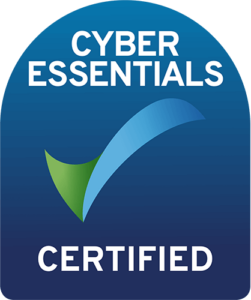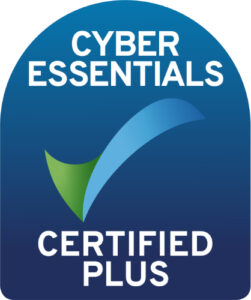Thinc insights
From tracking your goods to preparing for audits, traceability has never been more important for SMEs. Technology is making it increasingly easy to get the clarity you need.
Audits and traceability are words which at one time struck fear into any operations manager. With vast levels of stock to keep moving through a supply chain, preparing for an audit can represent a huge undertaking. As tighter regulation and more exacting industrial standards have become more the norm, so has the potential for headaches.
Managing risks requires education, training, consistent rules and documentation – manual processes that have traditionally been dependent on human delivery, and prone to error. However, today’s business technologies are now taking the effort and stress out of audit and traceability – in this guide, we’ll show you some of the ways it can simplify this aspect of your operations.
For many SMEs, a chief driver for better approaches to audits and traceability will be compliance. Sectors such as the chemicals and food industries are heavily regulated, meaning you’ll need to meet standards simply to operate.
If your organisation is seeking ISO certification, you’ll need to be able demonstrate that you have the processes in place to manage your stock’s lifecycle. If you’re bidding for contracts, you may also be required by the client to evidence the measures you have in place.
Effective traceability gives you that clear view of where your products are as they move through the chain. This is of course important for compliance, but it’s also good for your own business intelligence.
Imagine you receive an influx of complaints about a fault with a product that you’ve sold for years with no problems. With a fully traceable history of the product’s development, from production through to delivery, it’s far easier to pinpoint the stage where something didn’t go as planned.
Every organisation wants to do things the ‘right’ way – but ‘right’ can take time, which isn’t always a luxury your team has when dealing with peaks in demand.
Today’s business technologies can remove this worry. An enterprise resource planning (ERP) solution such as SAP Business One gives you a platform for managing all of your business processes, which, when integrated with the key systems used through the business and by your partners, gives you a streamlined way to ensure traceability and auditability.
Here are three areas where the right technologies can ease your audit headaches.
Warehouses and depots manage the flow of goods into, through and out of your organisation. The teams here have a key role in ensuring ongoing traceability, which brings challenges when working at pace and to increasing demands.
Paper-based processes, multiple terminals, sprawling spreadsheets – these can all lead to strain, inaccuracies and cutting corners. The cost of an error here can be huge, from recalling whole batches when one box would do, to being hit with hefty fines by regulators. If your organisation is subject to audits, then you’ll know how big a job it can be to prepare, hurriedly putting in place the steps that you wish you’d done months ago.
This is where a solution such as a warehouse management system (WMS) helps. By simplifying data capture through scanning devices and automating common operational processes, your WMS brings greater efficiency to your warehouse. This has particular benefits when it comes to traceability, as recording and documentation can be managed from one system, rather than relying on manual data entry and processing across multiple systems or spreadsheets.
Managing one busy warehouse or depot is challenging enough – but if your organisation depends on multiple systems working together, the complexity is even greater. Are you able to trace the journey of materials as they’re moved from your UK manufacturing business to your European assembly centre? Are your operations teams getting important customer feedback quickly enough from the sales department?
Having a unified view of a complex business used to be something that only enterprises could afford, but the same functionality is now available to SMEs. If you have multiple entities within your business family, you can now use intercompany solutions to consolidate your data and cut the administrative effort in trading between the companies.
It’s also now far easier to connect the business systems that you rely on. With advances in API development, many ERPs connect readily with core workplace technologies – but you can go even further with systems integration solutions that enable a huge range of systems to talk to each other, from ecommerce to courier services.
If you’ve successfully integrated your systems, you no longer need to worry about errors or delays involved in moving data from one part of the organisation to another.
Many SMEs will manage their logistical operations in house, but it’s also common to outsource this – particularly in leaner organisations that value the flexibility of working with a third-party logistics (3PL) provider. A potential worry with working this way is the impact on traceability as goods leave your control.
If this is the route you choose, it’s important to ensure integration of your business and 3PL systems. It’s now possible to ensure the same real-time data, accuracy and efficiency that you’d expect if managing logistics yourself, all while retaining that same scalability.
There are 3PL integration options to suit basic and more comprehensive requirements – ensuring you’ve got a clear view of your product even once it’s left the warehouse.
At Thinc we work with a range of customers with complex traceability requirements, helping them to lighten the loads on their operational teams. Our expertise in business applications goes beyond the core ERP platforms – we can advise you on a broad range of integration and automation solutions that will ease the burden of tracking and auditing. If you want to know more, get in touch.
Related Topics
Talk to Thinc about your traceability needs


Enter your details into the contact form below, and one of our experts will be in touch to arrange a time to speak.
If you’re an existing customer looking for support, please e-mail servicedesk@wearethinc.com, or visit our support page where you can download our remote support apps.